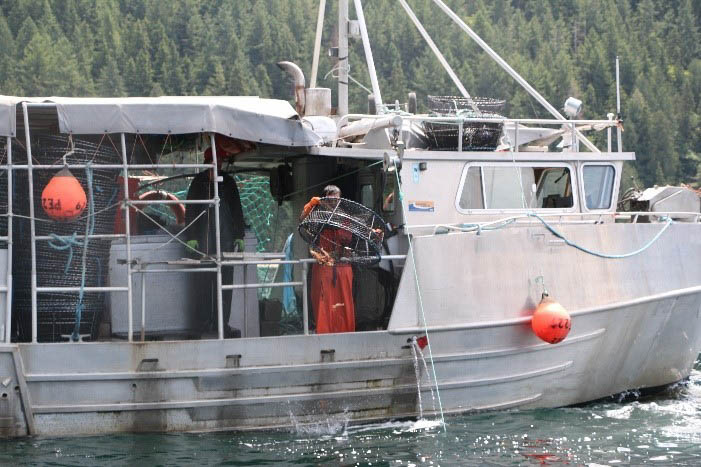Powell River, B.C. – On February 4, 2021, Hai A. Trinh was found guilty in Powell River Provincial Court for fishing in a closed area of Desolation Sound, retaining undersize prawns, and other violations of the Fisheries Act. The Honourable Justice Leven Wingham ordered the commercial prawn harvester to pay a fine of $30,000 and forfeit the value of his catch, which sold for $12,630.
On June 18, 2019, fishery officers received information from the public about a commercial prawn fishing vessel operating in a closed area.
Fishery officers from the Powell River Conservation and Protection Detachment intercepted the prawn vessel at sea. They found 200 prawn traps on board with fresh prawns, with two more strings of gear still fishing. All the traps were pulled from the water and the live catch was released. The officers escorted Mr. Trinh to Lund where the catch was seized and sold.
Fisheries and Oceans Canada has a mandate to protect and conserve marine resources and to prosecute offenders under the Fisheries Act. It ensures and promotes compliance with the Act and other laws and regulations through a combination of land, air, and sea patrols, as well as education and awareness activities.
Quick facts
- As part of Fisheries and Oceans Canada’s work to end illegal activity, the Department asks the public for information on activities of this nature or any contravention of the Fisheries Act and regulations. Anyone with information can call the toll-free violation reporting line at 1-800-465-4336, or email the details to DFO.ORR-ONS.MPO@dfo-mpo.gc.ca.
- This significant fine and full forfeiture of the illegal catch underscores the potential penalties for commercial harvesters who fail to comply with Canada’s Fisheries Act.
- All prawns begin life as males and mate, then change sex to become female at age 2 ½ to 3 years. After the eggs hatch in January to April, the female prawn dies within several weeks at the age of 4 years. Fishing in a closed area leaves insufficient female prawns in the area to spawn.
- Excess and illegal harvesting threaten conservation. It also could result in management changes or closures, diminish the significant economic benefit from the fishery to coastal communities, recreational fisheries, commercial harvesters, and threaten the food source for Indigenous people.







